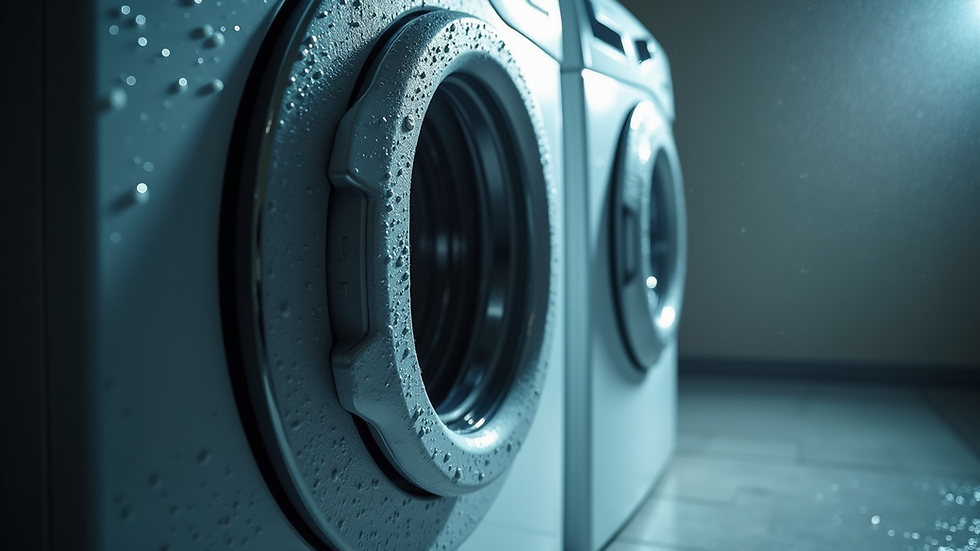Identifying Frequent Appliance Issues
- fixexpert16
- Aug 7
- 3 min read
Owning appliances makes life easier, but when they start acting up, it can be frustrating. Knowing how to spot frequent appliance issues early can save you time, money, and stress. I’ve learned that understanding common signs of trouble helps me keep my home running smoothly. In this post, I’ll share practical tips to help you identify problems before they become costly repairs.
Recognising Frequent Appliance Issues
Appliances like refrigerators, washing machines, ovens, and dishwashers are essential. When they malfunction, daily routines get disrupted. Some issues happen more often than others, and knowing these frequent appliance issues can help you act quickly.
For example, refrigerators may stop cooling properly, washing machines might leak water, or ovens could fail to heat evenly. These problems often have simple causes like worn-out parts or clogged filters. Catching these signs early means you can fix them before they worsen.
If you want to learn more about common appliance problems, this resource offers detailed insights and solutions.
Common Signs to Watch For
Strange noises during operation
Appliances not turning on or off properly
Water leaks or puddles around machines
Unusual smells or smoke
Inconsistent performance, like uneven heating or cooling
By paying attention to these signs, you can pinpoint which appliance needs attention.

How to Identify a Faulty Appliance?
Sometimes, it’s not obvious when an appliance is faulty. Here’s how I approach identifying problems:
Listen carefully: Unusual sounds like grinding, buzzing, or clicking often indicate mechanical issues. For example, a noisy refrigerator compressor might mean it’s struggling to cool.
Check for leaks: Water pooling near your washing machine or dishwasher is a clear sign of a problem. It could be a broken hose or a faulty seal.
Monitor performance: If your oven takes longer to heat or your fridge doesn’t keep food cold, it’s time to investigate.
Inspect power supply: Sometimes, the issue is as simple as a loose plug or a tripped circuit breaker.
Look for error codes: Modern appliances often display error codes. Refer to the manual or online guides to understand what they mean.
Taking these steps helps me decide whether I can fix the issue myself or if I need professional help.

Troubleshooting Tips for Common Appliances
Knowing how to troubleshoot can save you a service call. Here are some quick fixes for frequent appliance issues:
Refrigerator
Problem: Not cooling properly
Fix: Clean the condenser coils at the back or underneath. Check if the door seals are tight.
Tip: Avoid overloading the fridge to allow proper air circulation.
Washing Machine
Problem: Water not draining
Fix: Check and clean the drain pump filter. Inspect hoses for blockages or kinks.
Tip: Use the right detergent to prevent excess suds that can clog the system.
Oven
Problem: Uneven heating
Fix: Test the heating elements with a multimeter. Replace if faulty.
Tip: Use an oven thermometer to verify temperature accuracy.
Dishwasher
Problem: Dishes not getting clean
Fix: Clean spray arms and filters regularly. Use the correct detergent.
Tip: Avoid overloading the dishwasher to ensure water reaches all dishes.
If these fixes don’t work, it’s best to call a professional to avoid further damage.

When to Call a Professional
Some appliance issues require expert attention. Here are signs it’s time to get professional help:
Persistent leaks or electrical problems
Strange burning smells or smoke
Appliances that won’t start despite troubleshooting
Frequent tripping of circuit breakers
Complex error codes you can’t resolve
Professional technicians have the tools and knowledge to diagnose and repair safely. They can also offer maintenance plans to keep your appliances in top shape year-round.
Keeping Appliances in Good Shape
Prevention is better than cure. Regular maintenance helps avoid frequent appliance issues. Here’s what I do to keep my appliances running smoothly:
Clean filters and vents regularly
Inspect hoses and seals for wear
Avoid overloading machines
Use appliances according to manufacturer instructions
Schedule annual check-ups with a trusted repair service
By staying proactive, you can extend the life of your appliances and enjoy peace of mind.
Identifying and addressing appliance issues early makes a big difference. With these tips, you can handle minor problems yourself and know when to seek expert help. Reliable appliances mean a more comfortable home and fewer unexpected expenses. Keep an eye out for those warning signs and take action promptly to keep your household running smoothly.





Comments